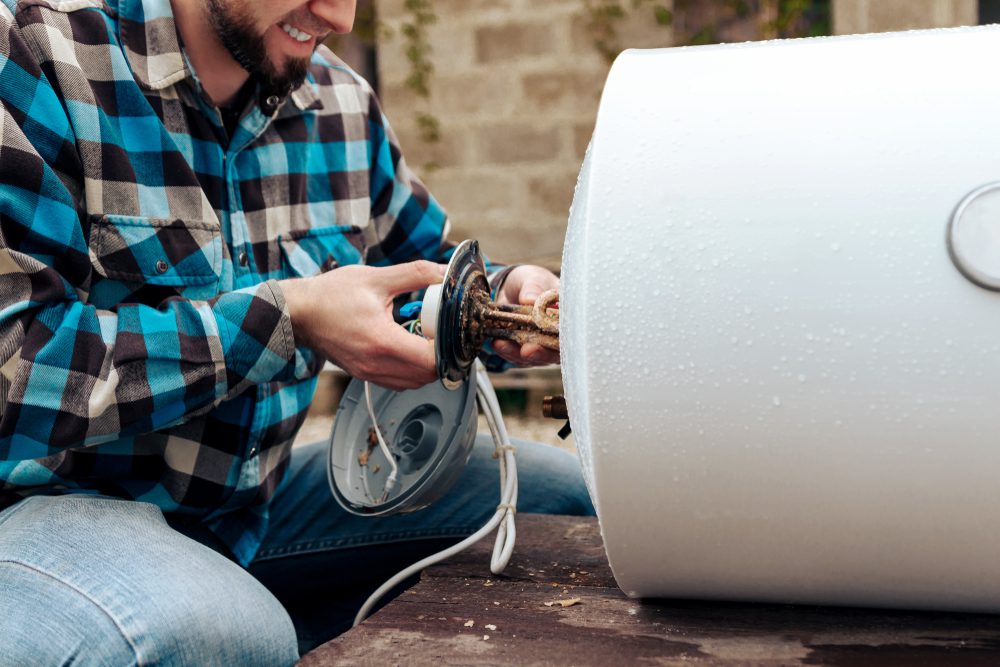Just how do you feel about Warning Signs You Need Water Heater Repairs?

A hot water heater is one of the most vital standard devices that can be found in a home. With hot water heater, you don't need to go through the stress of home heating water manually each time there is a requirement to wash, wash, or the recipes. Nonetheless, there is always an opportunity that your water heater would certainly act up just like many mechanical devices.
It is essential to keep in mind any type of little breakdown as well as tackle it swiftly before points get out of hand. Many times, your hot water heater begins to malfunction when there is a build-up of sediments as a result of continuous usage. As a preventative measure, periodic flushing of your water heater is recommended to stop debris accumulation and avoid functional failing.
Usual water heater emergencies and also exactly how to deal with them
Inadequate warm water
Dealing with an inadequate supply of warm water can be frustrating. It may be that the water heater can't support the warm water need for your house. To handle this problem, you can try to readjust your heating system's temperature dial as well as wait on a couple of minutes. You can ask for the help of a specialist plumber if the trouble continues. You might upgrade your water heating unit to one with a bigger ability.
Rising and fall water temperature.
Your hot water heater can begin producing water of various temperature levels usually ice scalding or cool hot. In this scenario, the first thing you do is to guarantee that the temperature level is readied to the wanted level. If after doing this, the water temperature keeps altering throughout showers or various other activities, you could have a faulty thermostat. There could be a need to replace either the heating or the thermostat system of your water heater.
Leaky water heater tank.
In this situation, you should transform off your water heating unit, enable it to cool down, as well as meticulously look for the resource of the issue. At times, all you need to do is to tighten up a couple of screws or pipeline connections in situations of minor leaks. If this doesn't function and the leakage continues, you might require to utilize the solutions of a technician for a suitable replacement.
Discolored or stinky water
When this takes place, you require to know if the issue is from the container or the water source. If there is no funny scent when you run chilly water, after that you are particular that it is your water heating unit that is damaged. The stinky water can be caused by corrosion or the buildup of microorganisms or sediments in the water heater tank.
Final thought
Some homeowners disregard little caution as well as minor faults in their hot water heater device. This just brings about additional damage as well as a feasible full malfunction of your appliance. You must manage your hot water heater faults as soon as they come up to stay clear of even more expenses as well as unnecessary emergency difficulties.
With water heaters, you do not require to go via the anxiety of home heating water manually every time there is a demand to take a bath, do the laundry, or the dishes. It might be that the water heating system can't sustain the hot water need for your home. Your water heating unit can start creating water of various temperatures usually ice cool or hot warm. If there is no amusing scent when you run cold water, after that you are specific that it is your water heater that is faulty. The odiferous water can be triggered by rust or the buildup of microorganisms or sediments in the water heating unit storage tank.
Common Water Heater Issues and What You Should Do
What Type of Water Heater Do You Have?
Before we begin it’s first important that you identify the type of water heater you have on your property. There are two main types of water heaters out there: conventional and high efficiency.
Both of these types of products typically use either gas or electricity to heat power. There are also solar water heaters that use a thermal collector on the roof or yard to heat the water.
While these models are not as common, they can cut heating costs in half. In this article, we will focus on conventional and high efficiency.
How Do My Electric and Gas Water Heater Work?
Though they look similar, electric and gas water heaters work very differently. It’s important to know their basic function because often problems can be specific to the heating source.
In the electric model, a thermostat on the side of the machine detects the temperature of the water in the tank. When the temperature needs to rise electricity flows to a heating element suspended in the water.
Gas models also use a thermostat device — typically with a mercury sensor at the tip and an additional sensor called a thermocouple. The thermocouple detects whether the pilot light is on and controls the flow of gas.
When the thermostat drops below the appropriate level gas is released which becomes ignited by the pilot light. The flame heats the bottom of the water tank which causes hot water to rise and cold water to drop.
This natural circulation continues until the water reaches the desired temperature. Then, the thermostat triggers the gas control valve to shut off the flow of gas.
What Are the Most Common Issues and How Do You Fix Them?
https://happyhiller.com/blog/common-water-heater-issues-and-what-you-should-do/

I stumbled upon that blog post on The Importance of Water Heater Maintenance when doing a lookup on the web. For those who appreciated our post please make sure you remember to share it. Bless you for your time. Visit us again soon.
Need Help? Hire Us Now!